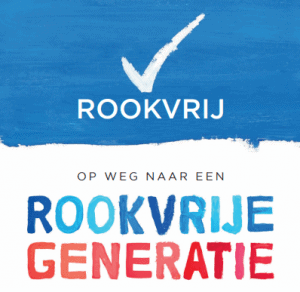Date
- Dec 16 2020
- Expired!
Chemical Biology at the TU/e Institute of Complex Molecular Systems – Diagnostics, drug discovery & nanomedicine
Content
On Thursday, June 3rd we have invited three professors from TU Eindhoven to give a lecture about several topics. This lecture will be a hybrid meeting and hosted at Pivot Park. In this masterclass we will cover the following topics:
- Nanomedicine – Jan van Hest (onsite and online)
- Molecular diagnostics – Maarten Merkx (onsite and online)
- Drug Discovery of protein-protein – Luc Brunsveld (onsite and online)
- Cooperation between biotech and academic – (Follow-up chat with audience onsite only)
Nanomedicine
Nanomedicine is regarded as a potentially ground breaking technology to improve therapeutic efficacy. In order to ensure the technology can live up to its expectations particle features in a biological context should be well controlled. Furthermore, the chain of knowledge should be involved, to ensure that relevant clinical questions can be translated intocommercially applicable nanoformulations. This lecture will describe a selection of the approaches followed at TU/e with regard to nanomedicine development.
Engineering biomolecular sensors for point-of-care diagnostics and continuous monitoring
Immunoassays form the cornerstone of today`s clinical biomolecular diagnosis. However, their translation into point-ofcare assays and continuous monitoring applications has proven challenging, because traditional heterogeneous immunoassays require multiple incubation and washing steps, the addition of exogenous reagents, and external calibration. In my lecture, I’ll present some of the new diagnostic platform technologies currently being developed within ICMS that address these needs using advanced biomolecular engineering and novel (single molecule) optical detection technology. Among others, I’ll discuss the development of bioluminescent sensor proteins that allow homogenous immunoassays to be performed directly in blood plasma and present the integration of these bioluminescent sensor proteins with paper- and threadbased diagnostic devices for point-ofcare diagnostic applications.
Stabilization of Protein-Protein Interactions; from chemical biology concept to drug discovery
Our group combines organic synthesis, protein chemistry, structural biology, and supramolecular chemistry to perform chemical biology studies on proteinprotein interactions (PPIs) with the aim to enable innovative medicinal chemistry for ‘molecular glues’ for PPIs. In this presentation I aim to show that a chemical biology approach to proteinprotein interactions (PPIs) helps to unravel the underlying, more complex, interaction mechanisms. This conceptual approach to PPIs allows to recognize and apply concepts such as multivalency and cooperativity within the context of drug discovery. Using nuclear receptors and 14-3-3 proteins as examples this presentation aims to provide insights into questions such as 1) How can chemical biology studies steer medicinal chemistry for PPIs? 2) What are the key biophysical characteristics of molecules that stabilize PPIs? 3) How can we find chemical starting point for PPI stabilization?
Speakers
Jan van Hest obtained his PhD from Eindhoven University of Technology in 1996 in macro-organic chemistry with prof E.W. Meijer. He worked as a postdoc with prof D.A. Tirrell on protein engineering. In 1997 he joined the chemical company DSM in the Netherlands. In 2000 he was appointed full professor in Bio-organic chemistry at Radboud University Nijmegen. As of September 2016 he holds the chair of Bio-organic Chemistry at Eindhoven University of Technology.Since May 2017 he is the scientific director of the Institute for Complex Molecular Systems (ICMS). The group’s focus is to develop well-defined compartments for nanomedicine and artificial cell research. Using a combination of techniques from polymer science to protein engineering, well-defined carriers and scaffolds are developed for application in e.g. cancer treatment, immunology and ophthalmology.
Maarten Merkx (1970) is a professor in protein engineering and dean of the department of Biomedical Engineering. His group combines approaches from protein engineering, chemicaland synthetic biology to develop biomolecular sensors and actuators for applications in intracellular imaging, point-of-care diagnostics, and antibodybased therapies. His group pioneered the development of bioluminescent sensor proteins that allow quantitative immunoassays directly in blood plasma, bridging the gap between current pointof- care and laboratory-based immunoassays. He obtained HFSP, VIDI, and several ERC grants (consolidator, 2x PoC) and also has substantial experience in collaborative research consortia at the national (CTMM, NanoNext, RAAK) and European level (NextDx, ITN CONSENSE).He supervised 20 PhD and 50+ MSc students, is associate editor of ACS Sensors, co-founded the start-up Lumabs bv..
Luc Brunsveld is a chemical biologist focussing on the understanding and modulation of protein-protein interactions (PPIs), particularly Nuclear Receptors and 14-3-3 proteins. His group is embedded in the interdepartmental Institute of Complex Molecular Systems (ICMS) and the NWO Gravity Research Center for Functional Molecular Systems. Luc was trained as organic chemist, did postdoctoral work on lipoproteins at the MPI Dortmund, was group leader Nuclear Receptors at Organon, and started his research group at the Chemical Genomics Centre of the Max Planck Society in 2005. In 2009, he moved to TU/e as Full Professor. Relevant awards include ERC Starting and Proof of Concept grants, Vici grant, NVBMB Award, Gold Medal of KNCV. Luc is currently a.o. chairman of the NVBMB and represents the Netherlands within the chemistry for life division of EuChemS. He is scientific co-founder of the 14-3-3 PPI drug discovery company Ambagon Therapeutics.
Info
Time
- 07:00 - 09:30
Hourly Schedule
Programme
- 07:00
- Nanomedicine
-
Speakers:
Jan van Hest
- 07:45
- Molecular diagnostics
-
Speakers:
Maarten Merkx
- 08:30
- Drug Discovery of protein-protein
-
Speakers:
Luc Brunsveld
- 09:15
- Cooperation between biotech and academic






